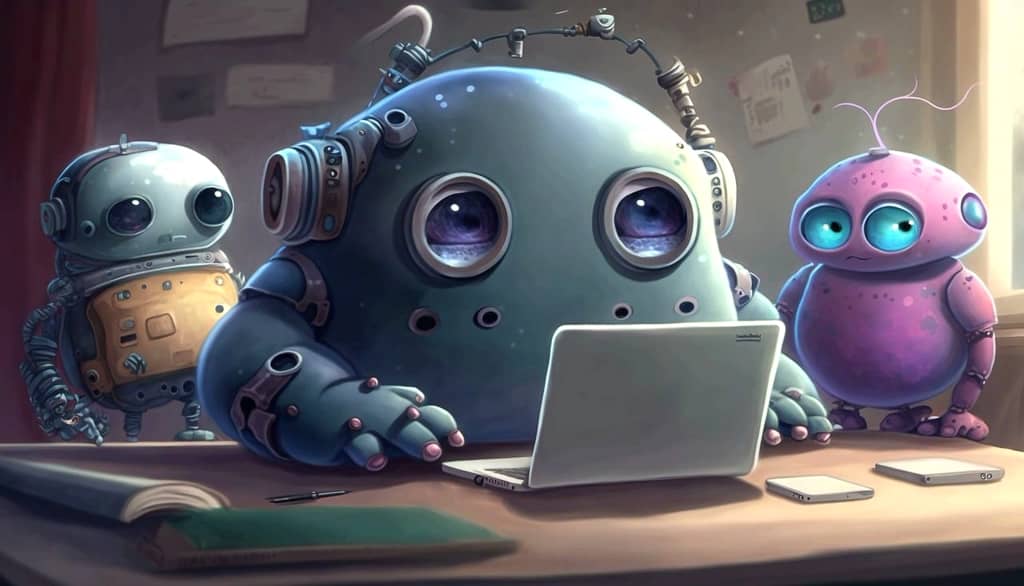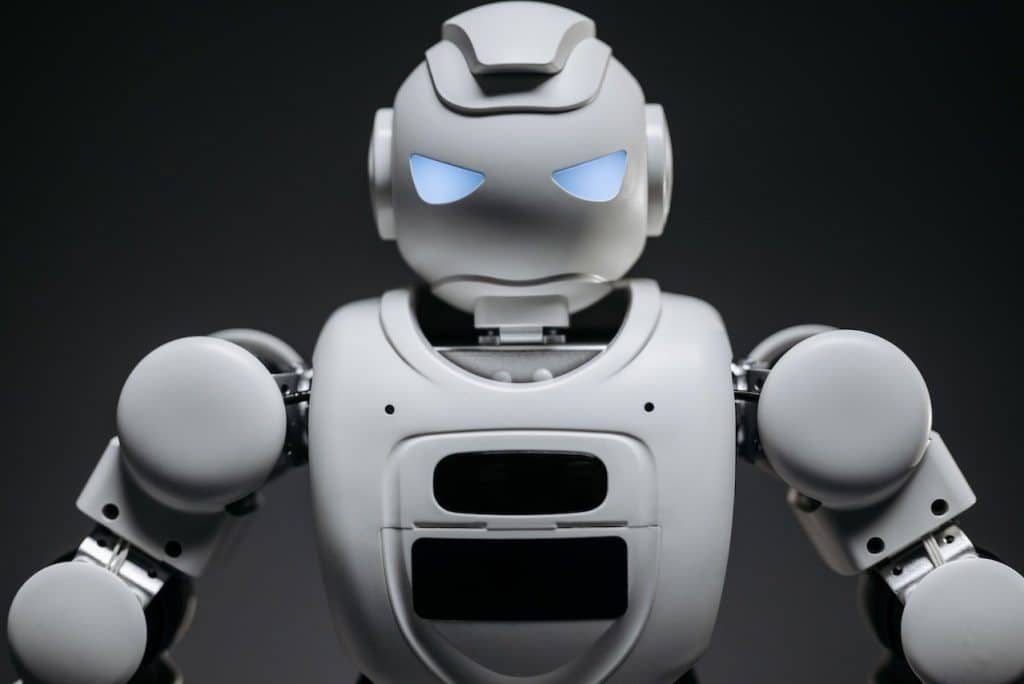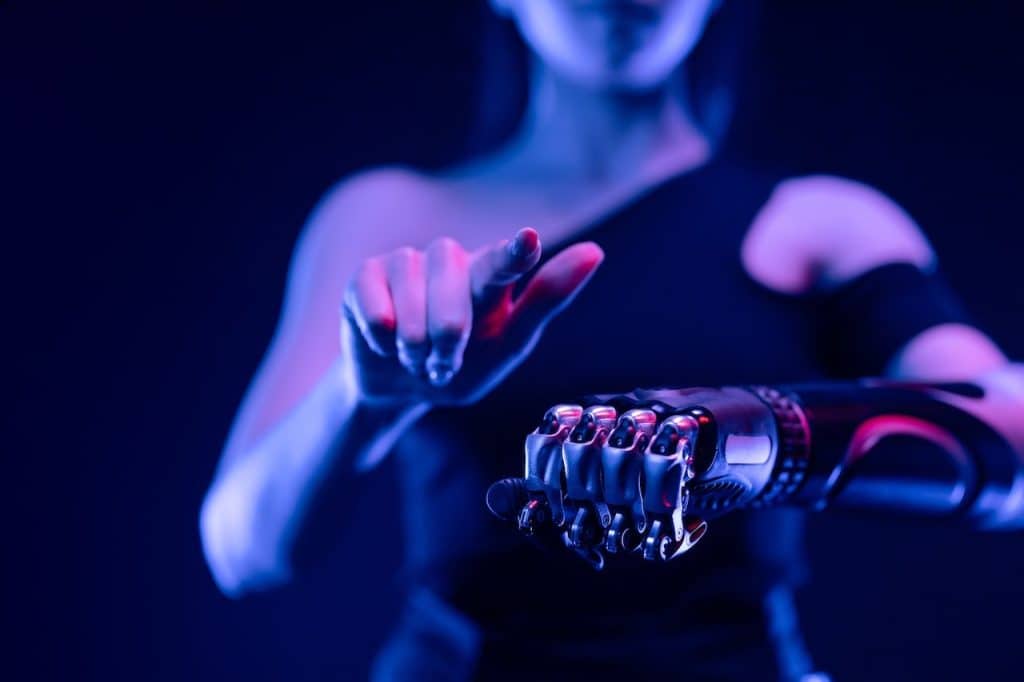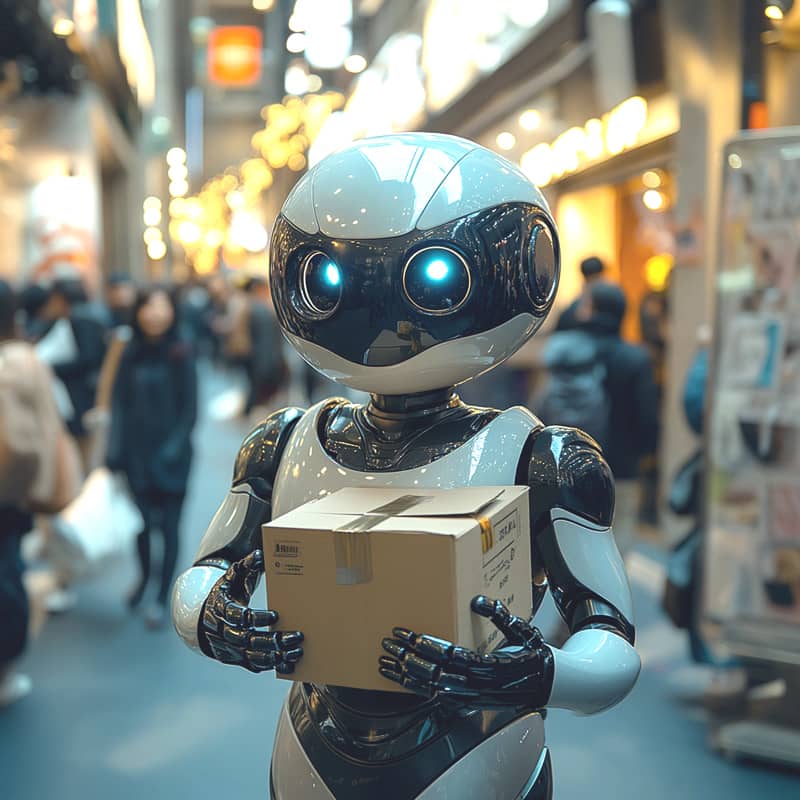One of the first major innovations that came out from the artificial intelligence (AI) era is chatbots. ChatGPT, being the most notable chatbot, have seen a significant surge in use in just two years.
We already know chatbots are capable in acting very much like human online agents. If you have tried interacting with a chatbot before, you’d notice that they can intelligently interact with customers, manage internal processes and deliver all kinds of other services.
So then, are you feeling afraid that AI chatbots may replace jobs? It certainly looks like they are on the verge of revolutionizing various sectors. (E.g. e-commerce, sales, copywriting, journalism, legal, healthcare, finance and more.)
It is therefore crucial for employees to gain a sound understanding on how AI chatbots operate. In this article, we will take a look at some of their advantages and limitations as well as understand if they really pose a risk in workplaces.
What Are AI Chatbots And What Can They Do?
AI chatbots are sophisticated programs designed to simulate human-like conversation through text or voice interactions. They leverage natural language processing (NLP), machine learning, and other AI technologies to understand and respond to user inputs in a meaningful way. What we have now is really a computer that is capable of thinking on its own.
Unlike traditional chatbots which rely on pre-defined scripts, AI-powered chatbots learn from the variety of data fed into its systems. This learning capability means its functions can extend beyond what they are programmed for.
Because chatbot is a learning machine, it can adapt to new scenarios and improve their performance. Similar to human beings, they can learn from new experiences and correct mistakes. They are able to achieve this level of performance because there is a vast volume of data fed into its systems. Every time you interact with a chatbot, they are learning from your inputs in real-time! This is the main reason why workers around the world perceive artificial intelligence as a threat to their jobs.
It is likely that many apps already have chatbots integrated into them. This includes different types of websites, social media platforms, as well as messaging applications. You may not realize it is actually a chatbot that you are interacting with because they are very good in simulating human conversations with customers.
It is predicted that mundane tasks that are typically performed by humans will soon be a thing of the past. Your next online booking or updating of details could very well be processed by a chatbot. You can even engage with a chatbot anytime because it can be online for you 24/7.
Career Tip: Launch a side business now to combat job uncertainties.
We are now rapidly advancing into a more advanced digital area powered by artificial intelligence and perhaps even quantum computing in the near future. As a result, many industries will be disrupted by technological innovations and it is inevitable that some jobs will be made redundant.
If you have a business idea that you have been deliberating, why not start manifesting the idea by publishing your own website or blog that powerfully expound your life aspirations or entrepreneurial ideas.
Use my affiliate links below to explore a wide variety of professional website services offered by Namecheap and I may get a commission if you make an online purchase at Namecheap’s website:
- Look for the best deals on website services.
- Get a free domain and email when you sign up for EasyWP Turbo WordPress managed hosting.
- Launch your venture with the Business Hub for digital entrepreneurs.


Invasion of AI Chatbots: How To Be Job Ready For Them
AI Chatbots: Boom or Bane?
Regardless of how you perceive the AI chatbot technology, here are some facts about chatbots which you should be aware of:
24/7 Availability
AI chatbots can provide round-the-clock service without needing any rest. Thus, there is a real threat of chatbots replacing employees who work in roles that only require superficial customer care. In fact, chatbots is an excellent technology that could greatly benefit business websites that are always “open for business”. In addition, they can also prove to be very resourceful in attending to questions that typically do not need real human interactions.
This will free up employees to take care of more important matters that cannot be handled by a chatbot. In contrast of being a threat, chatbots may open up new exciting job opportunities for employees who are ready to take on new challenges.
Cost Efficiency
From an employer’s point of view, reducing the need for human agents can significantly lower operational costs for businesses. Many businesses are still struggling to recover from the troubles caused by the Covid 19 pandemic, thus reducing cost is still a primary concern.
If your employer is considering downsizing or replacing your job role to make way for a chatbot, why not try to use the opportunity to discuss about upskilling for a better job?
Adaptability & Scalability
Chatbots are able to handle multiple conversations simultaneously, allowing a business to scale without the need to increase workers. In addition to that, chatbots are also able to converse in different languages as well as respond in a friendly and/or professional manner. You can program chatbots to respond with different types of emotions, depending on how the situation. This could also mean being bilingual and multilingual may no longer be a distinct advantage in the near future.
There are still many jobs that require a human touch. Bear in mind that the proliferation of online courses did not replace the plentiful of teaching jobs around. Major tech innovations such as Zoom and Slack also did not totally replace the need for actual face-to-face meetings.
Speed, Efficiency and Consistency
Computers have always been very good at doing repetitive tasks that require precision. If you need speed, precision and efficiency in a task, then it is certain that humans will lose the race. After all, humans can get sick and we do get angry when put under too much pressure. Bosses may view these facts as detrimental to their business but humans will be humans.
There is still hope because human traits like empathy, sense of humor and negotiation are still within human mastery. ‘Soft Skills’ are in great demand in many jobs, so perhaps you should start thinking about improving yourself ‘softly’ to impress more employers. Anyway, you should not worry too much about technological advances because Windows certainly did not replace all office administrative jobs. Henceforth, it is not likely that AI chatbots alone will cause mass layoffs in the job market. Nonetheless, we should still expect many different types of jobs to evolve or disappear as AI gets more widely adopted.
Personalization From Data Collection
Customer data is the “gold” of modern businesses and the machines can definitely do a much better job of gathering and analyzing data than a human. With the data in its systems, artificial intelligence can produce a personalized offer or service that customers may find very appealing.
Human beings with all its particular quirks and pettiness will always still need a human touch to get their needs satisfied. The employee who is able to tactfully fulfill customers’ needs will remain a valuable resource in the company.
Tech Tip: Achieve work-life by going digital.
Don’t neglect to take advantage of the wide variety of digital tools, services and resources that can grant you freedom from traditional work culture. Use my affiliate link below to explore digital tools offered by Namecheap. I may earn a commission if you make an online purchase at Namecheap’s website.
Namecheap New Business Hub – best offers for digital entrepreneurs.

Invasion of AI Chatbots: How To Be Job Ready For Them
Limitations of AI Chatbots
Do not fret if you think AI chatbots are going to take over the world and made mankind redundant. Here are just a few factors that may hinder the mass adoption of AI in the world:
- Data Privacy Concerns:
Chatbots are only truly useful when they are fed with a lots of data. So, the fact that we as Internet users demand data security could prove to be the barrier that would stop chatbots in ever reaching a stage where they can totally replace the need for human workers. - Lack of Human Touch:
Even Replika, a very popular social companion chatbot is known to churn out unsatisfactory robotic responses. So, it looks like people will still need real human interactions to fully satisfy their social needs. - Bias and Fairness:
Outputs from AI systems can inadvertently lead to unfair treatment of users and presenting distorted results. For example, we have a case where an AI system was not able to recognize the face of a data journalist who is a African American. Inappropriate gender stereotyping is also an area where AI systems have proven to failed. - Regulatory Compliance and Ethical Use of AI:
Before AI systems can be widely deployed, you can be assured they will be thoroughly vetted by regulators. For example, the European Union’s GDPR (General Data Protection Regulation) imposes strict rules on handling consumers data. Likewise, AI systems must also adhere to a string of laws pertaining to human rights. - Misunderstanding Complex Queries:
AI chatbots may still struggle with complex or ambiguous queries, resulting in unfavorable and inaccurate responses. Even regular enquiries sent to chatbots have been reported to be less satisfactory as compared to interacting with a live human agent.
Be More Tech-Savvy With Free Computing Online Courses.
You can study free IT and computing online courses with Alison and complete the entire course with graded assessments. You only pay if you need the certificate and I may get a commission as an affiliate.
The Future of AI Chatbots
As AI technology continues to evolve, the capabilities of chatbots will certainly expand. As the technology improves over time, we can expect chatbots to mimic human behavior more accurately. Much research is already underway to improve AI systems e.g. improved emotional intelligence, better understanding of context, and more sophisticated dialogue management.
AI chatbots represent a significant leap forward in automating and enhancing human to machine interactions. By balancing their advantages with a mindful approach to potential risks, businesses can harness the full potential of this transformative technology. It should be emphasized to businesses that they pay more attention to utilizing chatbots to enhance their business operations, rather than see it as a tool to replace human workers.
At this point of time, it is still difficult to predict whether or not chatbots will really cause major disruptions in the workforce. Looking at the bright side of things, emails certainly did not remove the need for postal services, nor did online shopping cause all retail shops to shut down abruptly. The proliferation of ATMs also did not remove the need for personalized services at bank counters.
Therefore, perhaps all these predictions and paranoia about the robots will cause utter mayhem in the workforce is just an exaggeration to get media attention….(hopefully).






